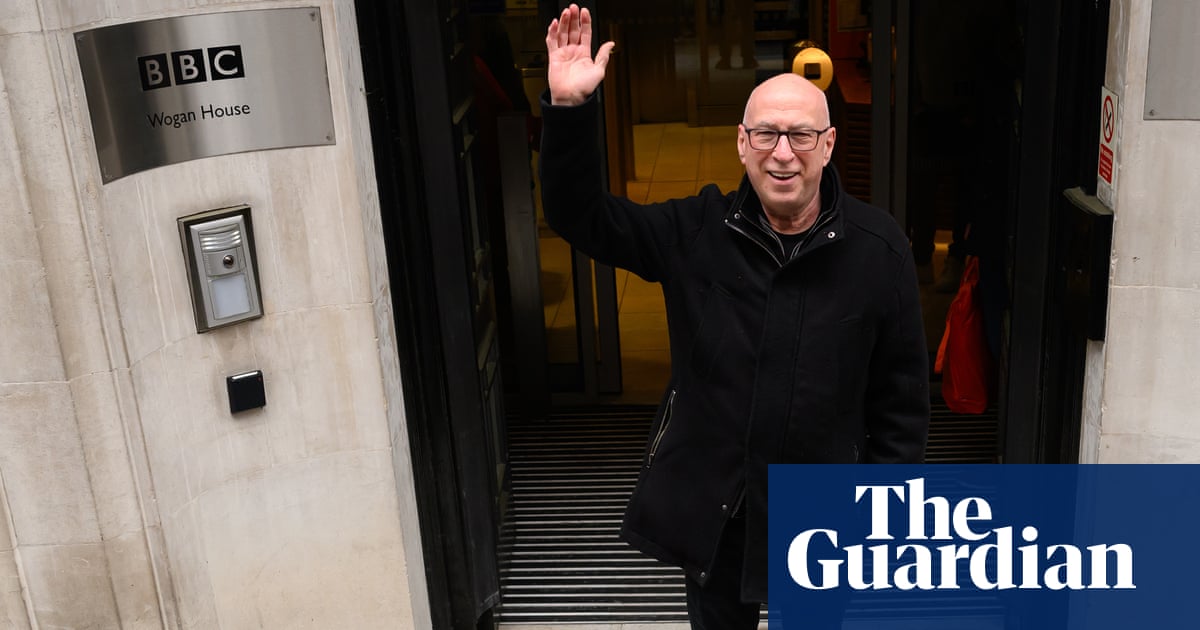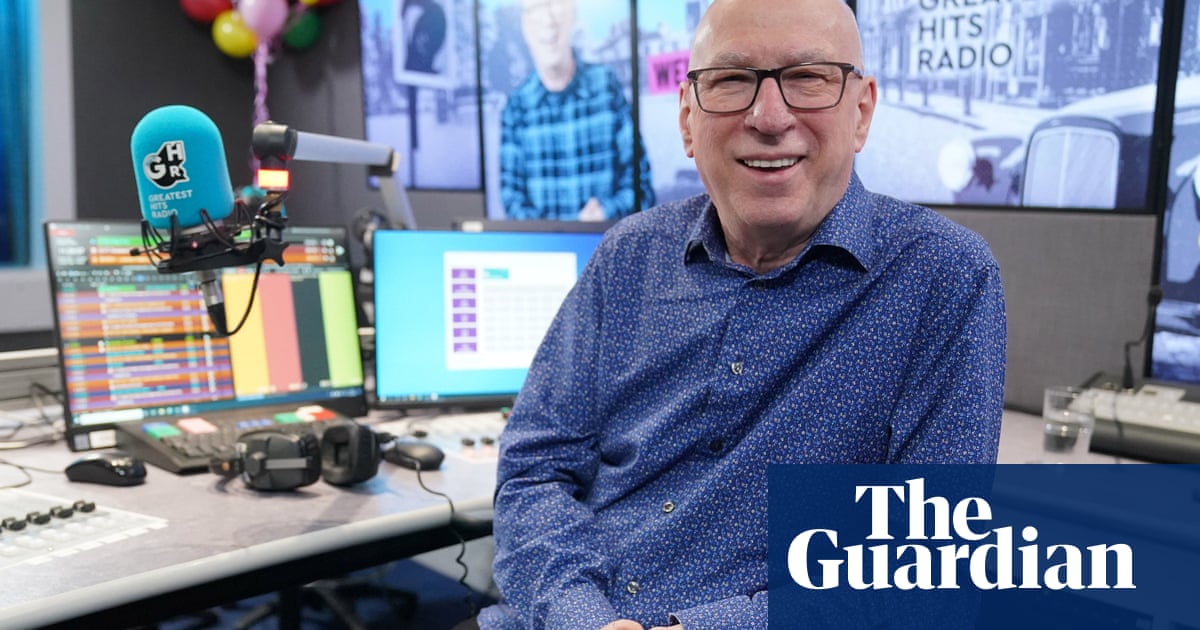
Leaving Radio 2 after 31 years of mornings, Ken Bruce promised a “normal day”. Some hope. He was interviewed by his former sportscaster Garry Richardson on Radio 4’s Today programme in the ministerial grilling slot usually reserved for those who have wrecked the country rather than enriched it. And schedule predecessor Zoe Ball, handing over for the last time at 9.30am, upgraded for the occasion from her default “My lovely!” to “My darling Ken!”
Bruce insists he wasn’t desperate to leave; Radio 2 claims to have been keen for him to stay. But somewhere between sloppy contract negotiations and music playlists rejigged to appeal to something called “mood mums”, the most fluent and loved BBC broadcaster since Sir Terry Wogan was lost to Greatest Hits Radio. Among his eight million weekly Radio 2 listeners, it’s not just the mums who are moody.
“Don’t go looking for secret messages or hidden agendas – it’s just good songs right through!” warned Bruce at the top of the show. Suitably rebuked, during the first record, the Jackson 5’s Can You Feel It?, we tried not to visualise Ken sticking pins into dolls of BBC Radio managers. But when the second song was Pink’s Trustfall – “Picture a place, somewhere else far away / Where you know what they mean and they mean what they say” – listeners concluded that either the DJ was double-bluffing or almost all pop music contains transferable sentiments, which is presumably why love songs work.
Towards the end of the first hour, the presenter referred to cards from listeners “festooning the studio”, and his voice seemed briefly to crack; soon afterwards, he had to cough it clear.
Bruce had hoped to see out his contract until 24 March, but Radio 2 silenced his mic three weeks early. This has been seen as cruel, but may be a canny exercise in what executives call “line flattening”. Given its significance and publicity, the last show – and especially its final 15 minutes, the qualifying period for listeners to count in ratings – is likely to have had a huge boost, impossible for an incomer to match. Interim host Gary Davies will be expected to get the numbers lower and slower, so that permanent replacement Vernon Kay’s first shows cannot be reported to have “lost millions”.
Bruce loved and learned from Wogan, at whose Westminster Abbey memorial service in 2016 the apprentice read, tinglingly, WB Yeats’s The Song of Wandering Aengus, linking the two broadcasters as mellifluous Celts whose ability to chat for thousands of hours was rooted in respect for language and rhythm. Unusually for a BBC star, Bruce rarely did other shows or corporate appearances; his days and nights were directed to getting access to enough vocabulary and facts to energise the dullest morning.
He was also shrewd to have kept the rights to the ridiculously popular PopMaster, a phone quiz on the dates and names of old chart tracks. There were often offers to spin it off as standalone radio or even TV, but Bruce kept it with him in the mornings, calculating that, to keep the contest, they’d have to keep him. The game goes with him to his new gig.
Further testing our injunction not to read between the lines of songs, the second hour began with Be Bop Deluxe’s Ships in the Night, with a lyric about square pegs in a round hole. Though professional to the end, Bruce indulged a little mischievousness, expressing mock outrage at a listener’s suggestion to hide kippers behind the studio radiators for Kay and, with the PopMaster contestants, possibly not enforcing the BBC rules against promoting commercial interests very strictly. The penultimate contestant thanked Bruce for being a “warm and funny friend to the nation” and recalled her late mum always having him on in the kitchen, a tribute nicely more precise than the “love the show” of much listener feedback.
Radio 2’s playlists are generally scheduled elsewhere, but Bruce seemed to have had the say on his final day and chose to go out on the final medley of the Beatles’ Abbey Road album. His final words echoed Lennon and McCartney’s closing line: “And in the end, the love you take is equal to the love you make.” A bit 60s hippyish, perhaps deliberately, for mood mums. “I have loved being with you so much. May we meet again somewhere.”
Er, 3 April, Greatest Hits Radio, whose publicity team will already have clipped that line to advertise their gain of the BBC’s loss – one of its greatest broadcasters, still with spring in his voice at 72. In the next phase of his career, let’s hope he knows what they mean and they mean what they say.











